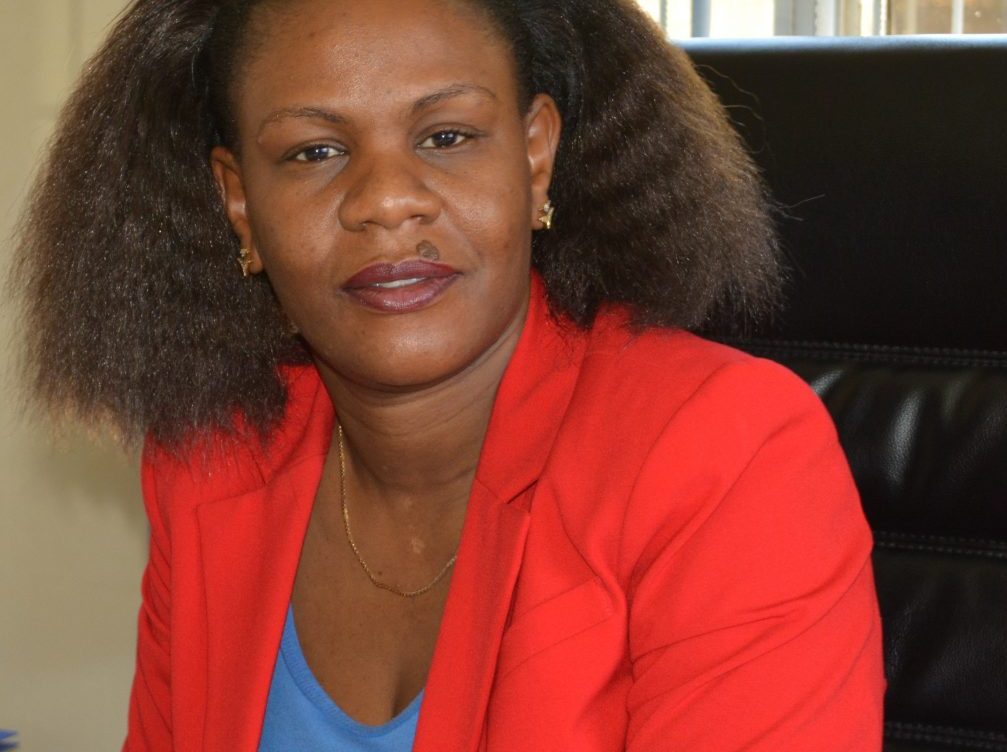
Feminist accountability towards ending gender-based violence
By Lilian Saka Kiefer
One of Africa’s most well-known human rights defenders, Archbishop Desmond Tutu once said: “In a situation of injustice, if you are neutral, you have chosen the side of the oppressor.” Those words by the Nobel Peace Prize Laurate bring to light the broad notion of accountability, that is, being accountable or taking responsibility for one’s actions or words, and their effects or consequences.
All aspects of society require accountability in order to champion or sustain positive change. In a feminist approach to accountability, it is also critical to advance feminist aspect to ensure that accountability has a feminist lens. As we commemorate 16 days of activism against gender-based violence, and bring to light the concept of feminist accountability, I would like to echo Archbishop Tutu’s view that being neutral or silent in the wake of gender-based violence or oppression, is in fact, siding with the perpetrators.
An associate professor of Women’s and Gender Studies and Director of the Women’s Centre at DePaul University, Ann Russo has explored feminist accountability as a framework for building movements to transform systemic oppression and violence. In her exploration, she discusses Feminist Accountability as an intersectional analysis of three main areas of feminism in practice: anti-racist work, community accountability and transformative justice. Russo further explores accountability as a set of frameworks and practices for community- and movement-building against oppression and violence. In her arguments, she presents a platform where society must take responsibility for their actions, rather than evade situations where they have been found wanting, thereby contributing to the feminist agenda of transforming oppression and violence.
This concept therefore presents an opportunity to all people to play a role in ending violence and oppression, but also to account for the harm we have caused, or the lack of action for the injustice we have observed. There is no room for neutrality. You are either fighting gender-based violence or perpetrating it.
In the current climate, it has become almost cliché to be feminist, but sometimes we say it without really reflecting if our own actions and behaviours toe the line. In her work, Russo asks feminists to consider the ways that our own behavior might contribute to the interlocking systems of oppression that we aim to dismantle. This is a critical aspect of feminist accountability. In one of her articles on Women Leadership, former Law Association of Zambia president Linda Kasonde questioned why women leaders are criticized for taking a firm stance in meting discipline where it is relevant, while our male colleagues can get away with disciplining people even in circumstances where it was not relevant. In some cases, this criticism comes from self-proclaimed feminists.
Women leaders have been called names such as evil, Jezebel, names like that simply for doing their job. I always wonder, is advancing women leadership not part of the feminist agenda? Now, if in our feministic approach we fail to acknowledge aspects of leadership such as managing people, building people and disciplining people as part of leadership to be exercised by women to both men and women who they lead, are we not fighting the same principles of feminism that we aim to champion? This does not mean that women leaders should not be questioned by women. Absolutely not. Women leaders must account to women, as well as to men. But, the motivation and the platform for questioning has to be justified and fair, as well as equally applied to both male leaders and female leaders.
The feminist accountability thinking also challenges us to reflect on how best we can build communities of both men and women who can stand up to injustice and create social change. In accountability terms, this begins with questioning oneself, our actions and beliefs and how we act them out. It is not enough to bemoan cyber-bullying against women and girls, and then go ahead ourselves and bully women and girls online, and feel justified, only because we call ourselves feminists.
I subscribe to Russo’s approach where she invites us to question ourselves about how we can work together to transform, without reproducing, systems of violence and oppression. While this includes discussions around the traditional cultural beliefs and practices that perpetrate patriarchy, it also covers our own daily actions and attitudes that oppress and victimize women and girls. These are the circumstances where those of us who champion feminism or are self-acclaimed feminists find ourselves perpetrating oppression and injustice.
I suppose feminist accountability brings us to a point where we must search ourselves and truly see areas where we need to do well in order to break the chain of oppression of the female gender which weighs down.
The author is the Executive Director of Panos Institute Southern Africa. For feedback, email: lilian@panos.org.zm.